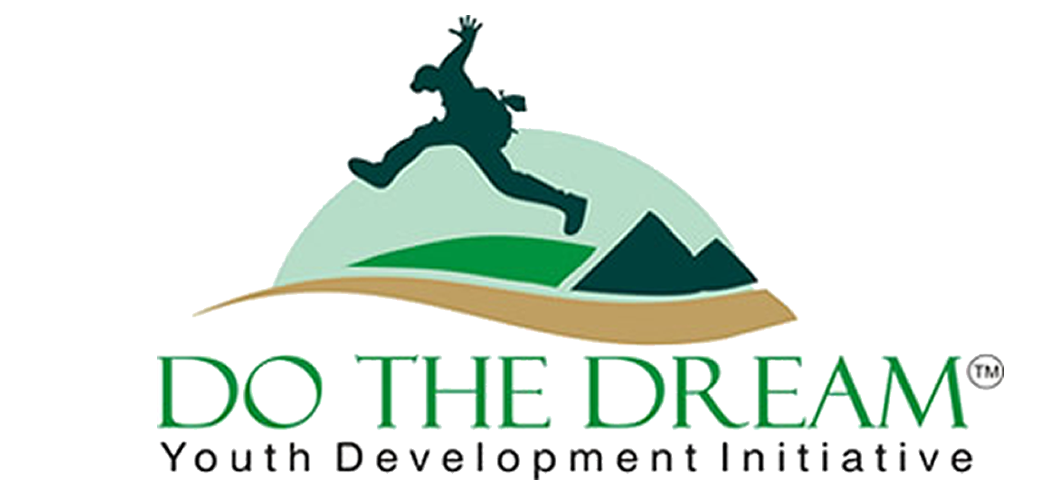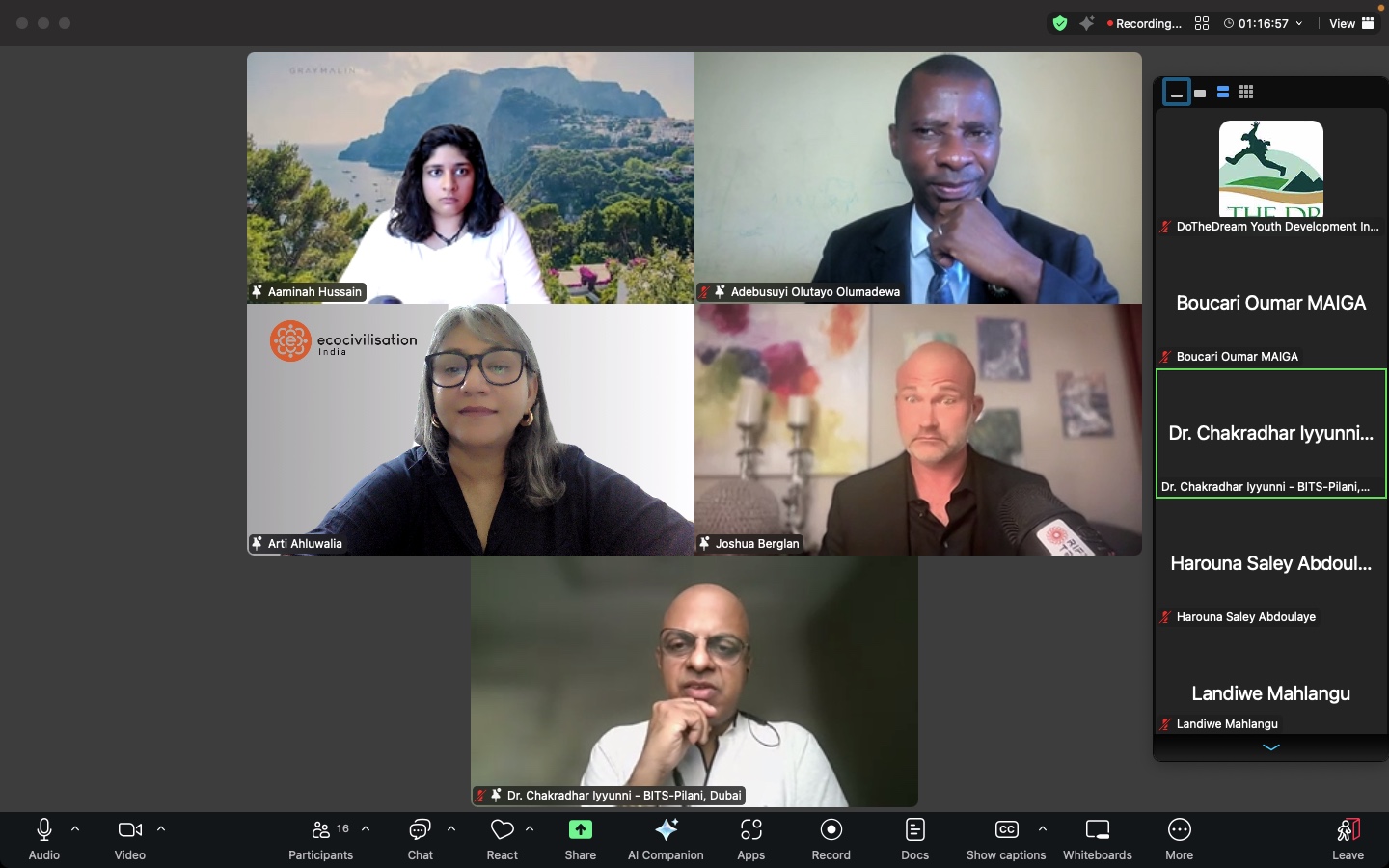
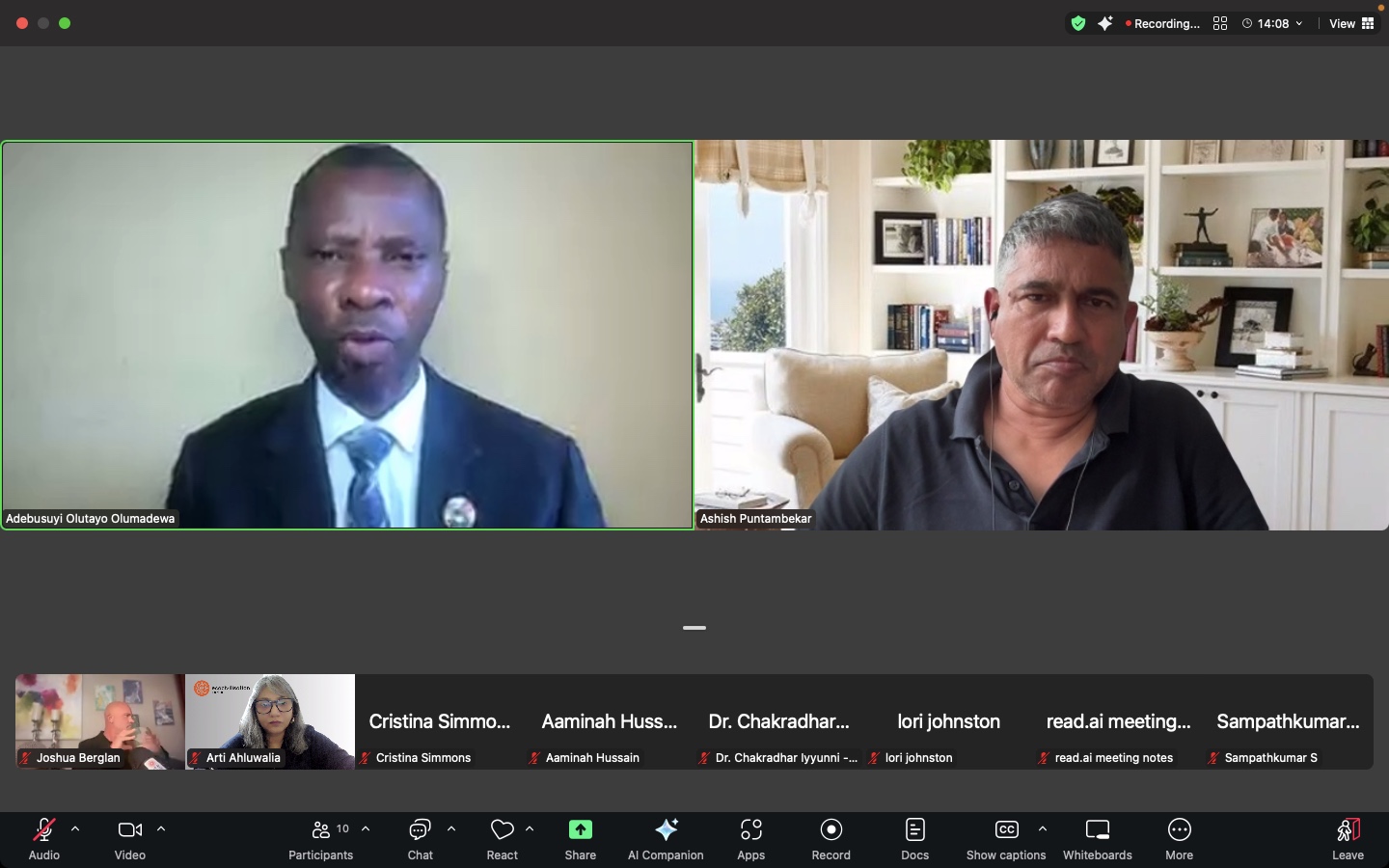
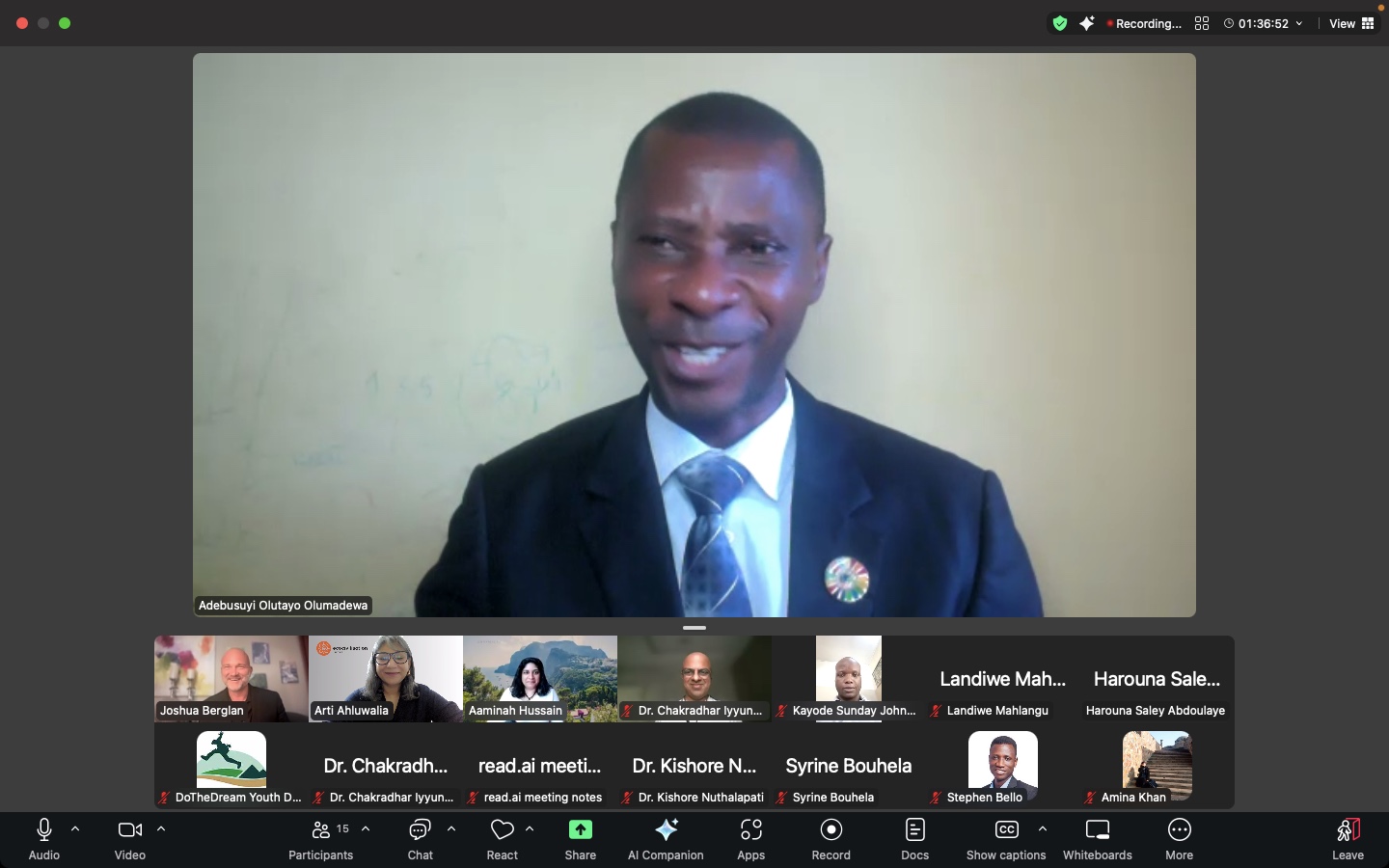
The “Bridge to the Future” side event, hosted by Adebusuyi Olutayo Olumadewa of DoTheDream Youth Development Initiative (YDI), brought together a diverse group of participants from around the world to explore innovative approaches for simplifying global financing mechanisms and accelerating progress toward the Sustainable Development Goals (SDGs). Attendees included Joshua from Oklahoma, Arti from India, Ashish, Dr. Chakradha, Aaminah Hussain, Harouna, and others, contributing a rich variety of perspectives and expertise.
Global South Sustainable Development Challenges
The dialogue began by addressing the unique challenges faced by the Global South in achieving sustainable development. Adebusuyi emphasized the importance of a “5CLICK” funding receipt system designed to enable evidence-based impact rooted in local action. Joshua Berglan, Vice President of Growth & Development at DoTheDream YDI, shared his personal journey and highlighted the critical need to simplify financial mechanisms, promote intergenerational equity, and leverage media as a tool for sustainable change. Arti stressed the importance of understanding the existing global financial architecture to empower informed collective action and called for greater representation and participation from developing countries.
Unlocking Trapped Urban Capital
Ashish introduced the innovative concept of “urban equity withdrawal” as a method to unlock trapped capital within cities, citing China’s success in tripling its economy through this approach. Arti supported this focus on mobilizing local resources and underscored the necessity of consensus-building at the grassroots level. The discussion also covered the crucial roles of private finance, debt sustainability, and debt relief for heavily indebted poor countries, especially in Africa.
Innovative Funding for African Development
Arti highlighted the challenges African nations face in accessing development finance, noting that despite the United States’ significant role as a financier, it remains excluded from Debt Sustainability Analysis (DSA) frameworks. She advocated for moving beyond traditional “old money” approaches toward innovative funding mechanisms. She referenced Special Drawing Rights (SDRs), which unlocked $650 billion globally in 2022-2023 but allocated only a small fraction to African countries. Ashish proposed a pilot project involving a $5 million school development in Africa, potentially impacting 3,000–4,000 people, as a scalable model for broader initiatives. Arti expressed interest in further exploring this pilot, and Joshua was invited to provide insights on the funding figures discussed.
Individual Action for Global Challenges
Joshua and Arti discussed the power of individual action and accessible tools over costly, large-scale solutions. Joshua emphasized storytelling and free media as catalysts for change, while Arti highlighted the importance of understanding and maximizing individual wealth. Both agreed that society often underestimates the potential within individuals and communities, and that new wealth creation is essential for sustainable development. Arti also shared her work on integrating unpaid housework and social work into GDP calculations, critiquing the lack of bold action in current financing plans.
African Pilot Project Implementation
The group deliberated on selecting a stable African country—such as Zimbabwe, Zambia, Egypt, or South Africa—to implement the proposed $5 million urban equity withdrawal pilot. Arti shared lessons from a previous project in Nigeria, emphasizing challenges related to political instability and the need for local consensus. Adebusuyi introduced a localization template based on the “5 P’s” (people to product, product to pricing, presence to places, and places to path), aimed at aligning innovative financing with SDG achievement. The discussion concluded with calls to facilitate market creation at the local level and requests for examples of successful early prototypes.
Children’s Well-Being Framework Presentation
Arti presented her “Be Well” framework, designed to provide comprehensive reports on children’s behavior and well-being to parents and educators. She shared her work with children affected by terrorism in Jammu and Kashmir and her prison reform initiatives for adolescents. Arti expressed interest in partnering with DoTheDream YDI to address these social challenges. Adebusuyi highlighted a report shared with the UN linking sustainability efforts to consequences for future generations.
Enhancing Funding for Sustainable Projects
Aaminah Hussain addressed the challenges of funding local sustainable development projects and advocated for a collaborative, cross-sectoral approach. She emphasized synergy among governments, businesses, charities, and communities to share resources, risks, and skills. This approach, supported by blended finance and shared platforms, can streamline funding and increase impact. Aaminah stressed the importance of strong local leadership, trust-building, clear communication, and flexible funding models for successful partnerships.
Intergenerational Leadership and Media Literacy
The dialogue underscored the importance of intergenerational collaboration, with Arti advocating for empowering youth while valuing the wisdom of elders. Dr. Chakradha and Joshua highlighted media literacy and interdependence as vital for building new platforms and smart cities. Joshua shared his personal story of overcoming adversity to build a thriving community, illustrating the potential of individual purpose-driven action.
Advocacy and Development Initiatives
Harouna shared his peacebuilding and community radio work in the Sahel, focusing on rehabilitation and reintegration of ex-combatants and advocacy with traditional leaders. Joshua described DoTheDream’s mission to provide media resources and tailored education to underserved communities. Adebusuyi announced that the “Bridge to the Future” series will continue, with plans to develop a “5-click” funding system to simplify global financing and support development initiatives worldwide.
Community Initiatives for Sustainable Impact
The meeting concluded with discussions on community service, environmental sustainability, and youth empowerment. Arti shared her inspiration to combat food scarcity through local food production, while Adebusuyi emphasized innovation and impact as key to addressing global challenges. Plans for a future conference to build on these goals were discussed, and the session ended with group photos symbolizing the collaborative spirit.
This session demonstrated the power of diverse voices and innovative thinking in simplifying global financial mechanisms and advancing sustainable development. The ongoing “Bridge to the Future” dialogue promises to foster actionable solutions and inclusive partnerships for a better tomorrow.
Spark of Tomorrow: Igniting Futures in Energy
Imagine a world pulsating with innovation, a future powered by clean, limitless energy, where every home glows with possibility, every industry hums with efficiency, and every life is transformed by accessible power. This isn’t a distant dream; it’s a world being built right now, brick by sustainable brick, by minds fueled by passion and purpose. And at its heart, we believe, are you—the next generation of leaders, innovators, and visionaries.
We are thrilled to embark on a momentous journey with twenty extraordinary young women, a pioneering cohort ready to step into the vibrant and critical world of energy. This isn’t just a project; it’s a profound invitation to engage with the very forces that power our world, to connect with leaders, mentors, and seasoned professionals, and to discover how your unique brilliance can illuminate the future of energy.
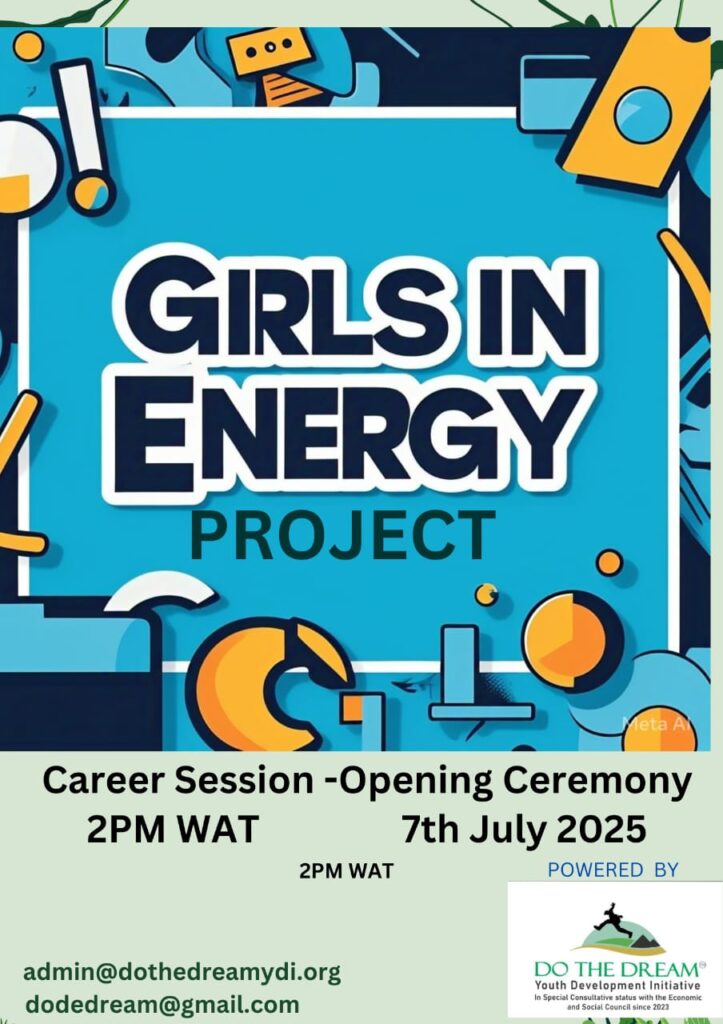
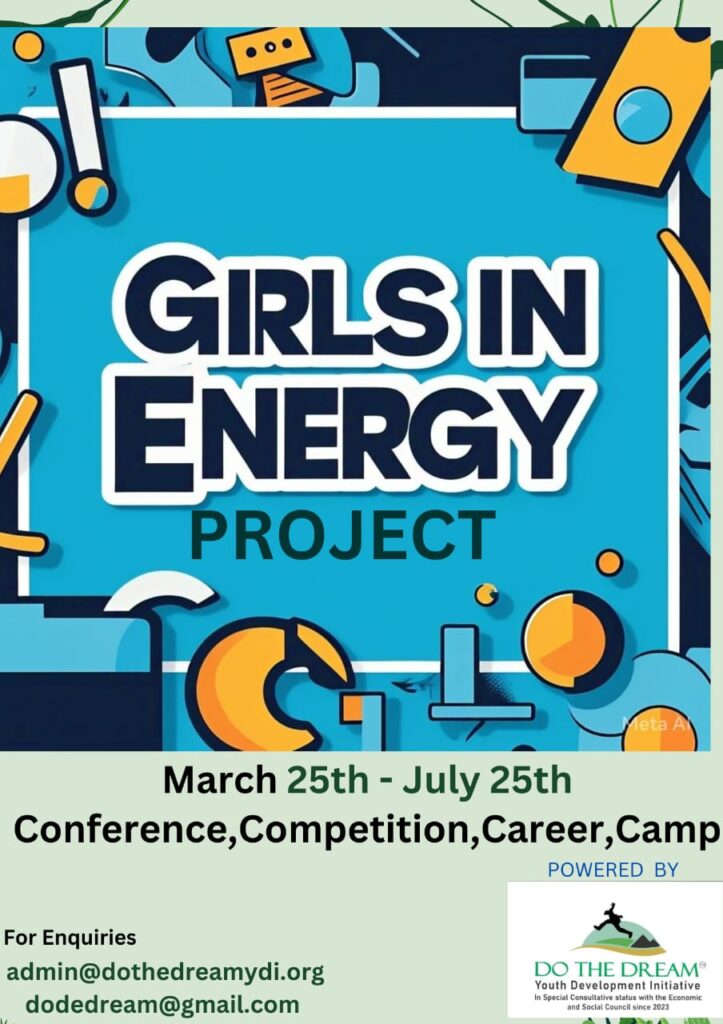
The Girls in Energy Project is a transformative initiative by the DoTheDream Youth Development Initiative aimed at inspiring, educating, and empowering young girls to pursue careers in the energy sector. Through a dynamic combination of conferences, competitions, career mentorship, and camps, this project seeks to bridge the gender gap in STEM (Science, Technology, Engineering, and Mathematics) fields, particularly in energy-related industries. By providing young girls with the knowledge, skills, and confidence to thrive in these fields, the project aims to create a pipeline of female leaders who will drive innovation and sustainability in the energy sector.
With the Objective to Ignite interest in energy-related careers among young girls through exposure to role models and real-world applications.
Educate: Equip participants with technical knowledge and skills in energy systems, renewable energy, and sustainability
Empower: Build confidence and leadership skills to help girls overcome barriers and excel in male-dominated fields.
UPCOMING EVENTS -ECOSOC
As an Accredited Organisation to Economic and Social Council, the attached are the ECOSOC 2025 Event for participation by member states, CSOs ,Academia etc
UPCOMING EVENTS-UNEP
As an Accredited Organisation to the United Nations Environmental Programme UNEP, the attached are 2025 Event for participation by member states, CSOs ,Academia etc
